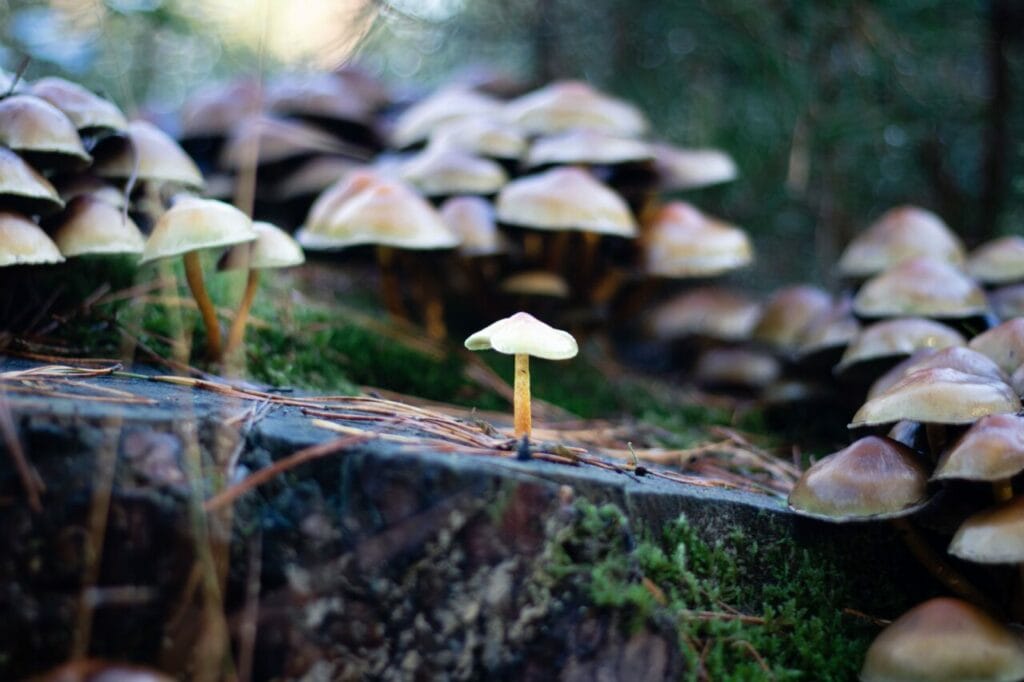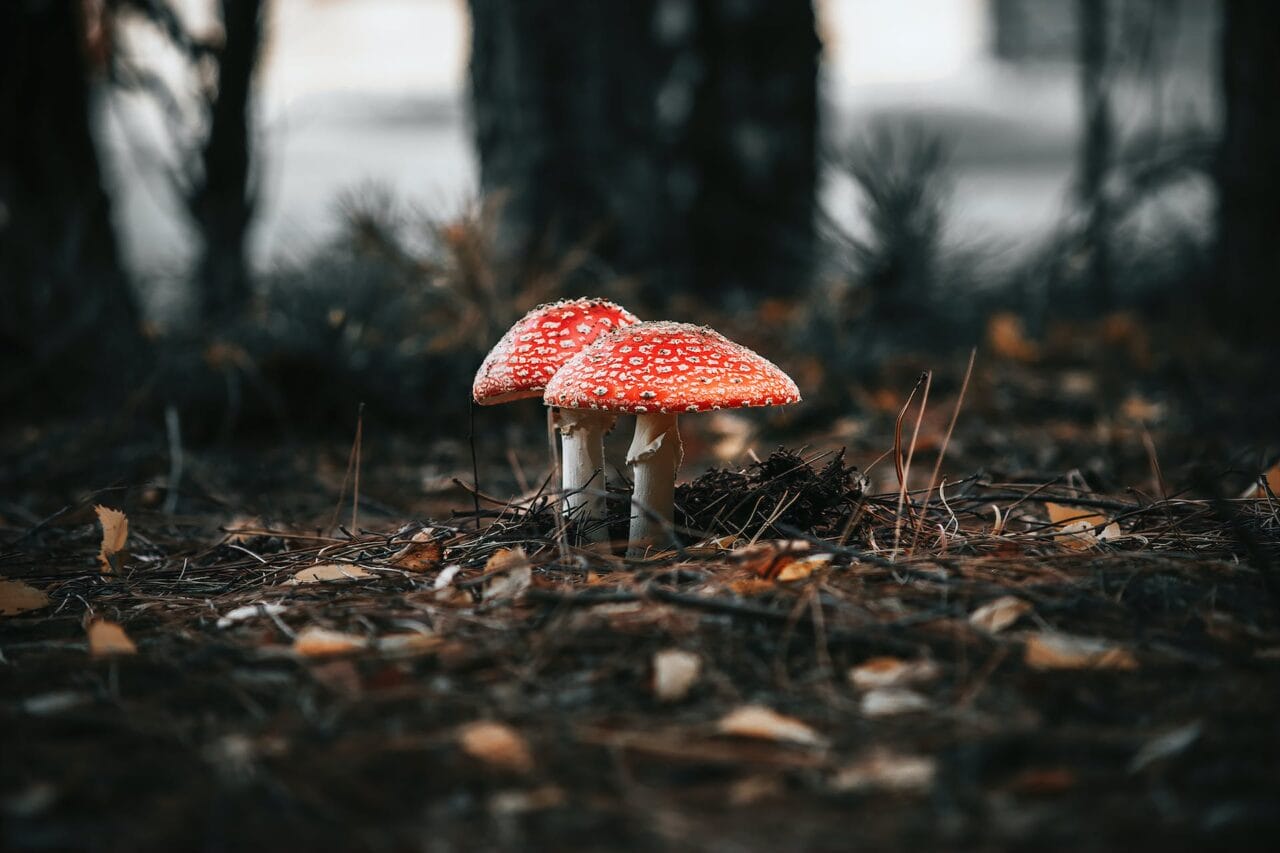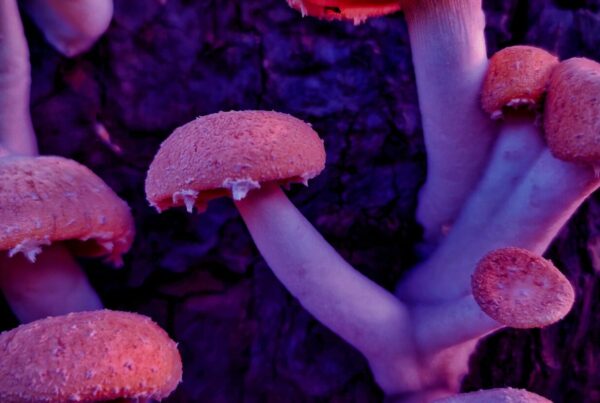Interest in psilocybin mushrooms is growing, driven by studies into their potential to aid mental health conditions such as anxiety and addiction. Despite this, access to psilocybin remains a challenge. The number of labs and shroom delivery services that supply magic mushrooms is limited, and prices can be high.
This piece will delve into the evolution of psilocybin, its current status, and the potential advantages it could provide for those seeking help.
[toc]Main Takeaways:
- Mushroom cultivation requires substantial effort and careful monitoring to avoid contamination during the inoculation phase.
- Psilocybin creates a psychedelic effect by interacting with various brain regions, specifically the serotonin receptors.
- Psilocybin only slightly increases the heart rate, which returns to normal soon after ingestion, and generally does not cause other negative effects.

Supplying Only the Best Quality Magic Mushrooms
Magic mushrooms naturally grow in a variety of environments such as manure-rich pastures, deciduous forests, grasslands, and woods. Over the years, people have ventured into these areas to collect these fungi for medicinal purposes or to use them in spiritual and religious rituals.
Conventional Method
Currently, the traditional practice of searching for mushrooms in these natural habitats is less common. This shift can be attributed to the advent of new alternatives such as cultivation or the ability to buy magic mushrooms online.
Wild mushrooms are often less potent than those grown in labs, which are carefully bred in controlled environments. Moreover, foraging in the wild carries the risk of accidentally picking a poisonous species.
Contemporary Method
The process of mushroom production starts by nurturing spores to maturity, a complex process that necessitates a
To ensure no potential contamination during the inoculation stage, a high level of meticulousness and time is required. Upon harvesting, the mushrooms are usually dried by cultivators or laboratories to extend their shelf life. Fresh mushrooms have a lifespan of a few days, while dried ones can be preserved for several months or even up to a year.
Manufacturers transform dried mushrooms into various forms such as microdose capsules, tinctures, edibles, and beverages. These products are then distributed across Canada through magic mushroom delivery services.
Maximizing the Advantages of Psilocybe Cubensis or Magic Mushrooms
Researchers conduct clinical trials on mushrooms mainly to explore their impact on mood disorders and mental health, as suggested by anecdotal evidence. Numerous studies are underway to investigate these influences, from microdosing with capsules to journeying on a mushroom trip with dried mushrooms or chocolate edibles.
Upon consumption, psilocybin is metabolized into psilocin, a compound that functions similarly to serotonin, a critical neurotransmitter for mood regulation. It engages with several parts of the brain, primarily the serotonin receptors, initiating a psychedelic journey.
Many who undergo psilocybin therapy report deep transformations beyond mere sensory enhancement and visual changes. These experiences can trigger a substantial shift in self-perception and a profound alteration in personal perspective, often marked by deep insights.
Depression and Suicidal Thoughts
A study in the Journal of Psychopharmacology explored the impact of a psychedelic experience on individuals dealing with depression and suicidal thoughts. Most participants deemed their encounter with psilocybin highly significant and highlighted its potential to affect their lives positively. Such levels of satisfaction could enhance the effectiveness of therapy, considering the critical role of patient engagement in mental health interventions.
Safety Profile
Researchers not only study the effects of psilocybin on depression and anxiety but also its safety profile. A study in JAMA Psychiatry showed that participants who took psilocybin experienced a slight rise in heart rate and blood pressure two hours post-consumption. However, further analysis using Holter monitoring revealed no significant increase in cardiac arrhythmias risk in the psilocybin group compared to the niacin group. The study also found no noticeable mental distress in its users.





